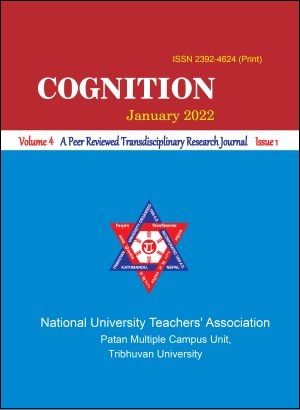Employee Views Towards Retirement Scheme in Development Bank of Nepal
DOI:
https://doi.org/10.3126/cognition.v4i1.46482Keywords:
views, retirement scheme, EPF, employeeAbstract
The main objective of the study is to assess the employee view toward the Employee Provident Fund (EPF) scheme, as a retirement scheme, with various factors that influence the attitude in development banks of Nepal. The study is based on a descriptive and explanatory research design. A quantitative research design was applied. Out of 18 development banks in Nepal, Jyoti Bikas Bank, Shangrila Development Bank, Muktinath Bikas Bank, and Garima Bikas was selected as sample unit for the study. The study is based on the primary data collected from Employees or contributors as respondents. Pearson’s multiple correlations and linear regression analysis were used for data analysis. Correlation analysis shows a significant linear, positive, and moderate relationship between independent variables namely, saving and investment, benefits scheme, and work environment, and dependent variable namely, employee view toward EPF scheme. The regression analysis reveals that there is a positive view of employees toward EPF in terms of saving and investment. Also, there is a positive view of employees toward EPF in terms of the working environment. However, there is a negative view of employees toward EPF in respect of the benefits scheme.




